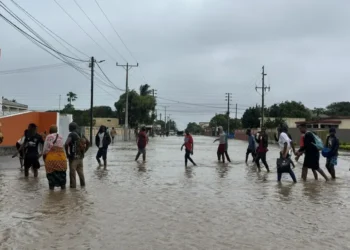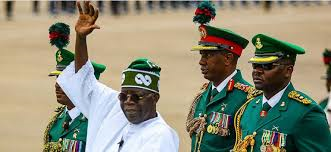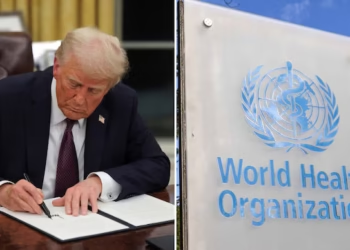African nations may see reduced benefits from Donald Trump’s return to the White House, with limited U.S. engagement and investments, according to Dr. Ishmael Hlovor, an international relations expert.
Dr. Hlovor discussed the implications of Trump’s presidency for Africa during an interview on ABC in the Morning on November 6, 2024.
He noted that, although financial support from the U.S. under Trump’s first term amounted to approximately $7-8 billion on average, the focus on Africa’s collective needs might be less pronounced moving forward.
“What we may be lacking is the high-level visits that characterized the Biden era, such as Vice President Kamala Harris’ trip to Ghana,” he remarked.
“Trump’s nature may not prioritize these diplomatic gestures as much, especially for smaller African countries.”
The shift in focus under Trump is expected to be more strategic. Dr. Hlovor emphasized that Trump is likely to direct his attention to African nations with critical resources that directly benefit U.S. interests, leaving smaller countries on the sidelines.
This will likely narrow the scope of engagement for the majority of the continent. “Small countries may not benefit from Trump’s presidency,” he cautioned, suggesting that only those with vital resources might see substantial engagement.
Dr. Hlovor also pointed out that during the Biden administration, African nations experienced a heightened level of diplomatic visits, such as Vice President Kamala Harris’s trip to Ghana, an outreach that may diminish with Trump in office.
Dr. Hlovor further highlighted the potential economic and trade implications of Trump’s return, noting Africa’s own shifting dynamics.
“Now we have the African Continental Free Trade Area (AfCFTA), which collectively gives very huge market power to Africa,” he said. This economic bloc could open avenues for trade deals focused on U.S. corporate interests, should AfCFTA reach its full operational potential.
“So, if AfCFTA is very effective, Trump’s victory may bring more engagement with Africa,” he explained, although the emphasis would likely remain on lucrative, resource-rich regions rather than broad-based support across the continent.
On social issues, Dr. Hlovor addressed how Trump’s policies could influence LGBTQ+ rights in Africa, expecting that LGBTQ+ advocacy will face setbacks.
“Under Trump’s presidency, you are more likely to see LGBTQ rights pushed back in Africa,” he observed, a stance that could resonate with some African leaders but alienate others who view LGBTQ+ rights as part of universal human rights.
Trump’s victory, Dr. Hlovor concluded, may appeal to those opposed to LGBTQ+ inclusion, but for others, it marks a challenging shift.
However, the final election results are expected to be announced within the next ten to thirteen days, declaring who befits as the next US President.
By Ruth Sekyi (LinkedIn: Ruth Sekyi)

































